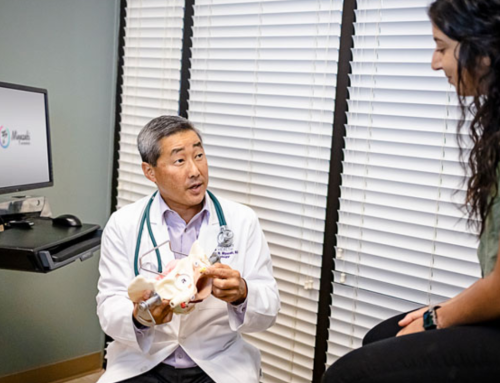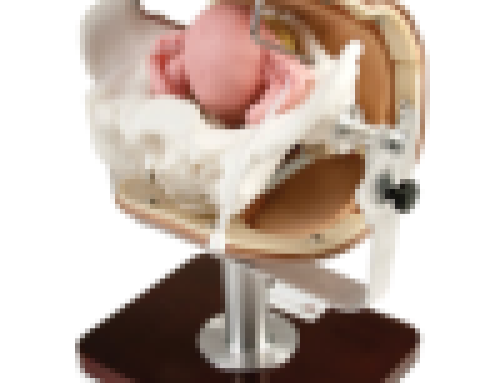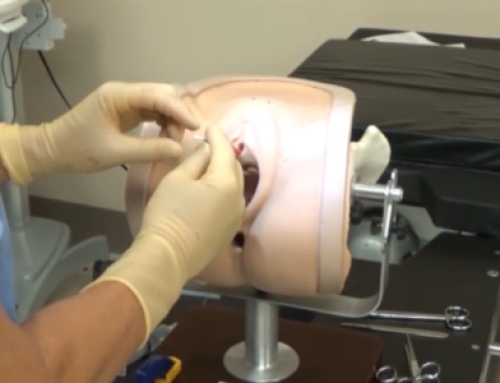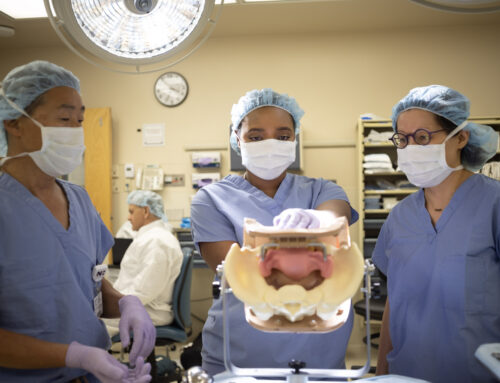In complex gynecologic surgery, where anatomical variations and the proximity of vital structures demand precision and composure, simulators are the preferred way to educate. Simulation technology allows residents to master challenging techniques – from navigating the uterosacral ligament during hysterectomy to managing intricate dissection planes – before ever approaching a live patient. The result is a generation of surgeons who enter the operating room better prepared, more confident, and ready to provide exceptional care, leaving anxiety and worries behind.
Building Confidence Through Psychological Safety
The concept of psychological safety in medical education represents a paradigm shift in how surgical skills are acquired. Rather than learning under the stress of potential patient harm, residents can now develop expertise in simulated environments specifically designed for learning. This approach addresses a fundamental challenge in surgical education: when learners are anxious, their working memory becomes constrained and fine motor control suffers.
Simulation solves this problem elegantly. Creating safe spaces for practice allows residents learning complex procedures like pelvic reconstruction and endometriosis excision to focus entirely on skill development. The fear of irreversible mistakes dissolves, replaced by the freedom to experiment and refine techniques through repetition. Residents arrive in the OR with confidence and skill after substantial simulator training has been completed.
The Power of Risk-Free, Stress-Free Repetition
High-fidelity surgical simulators offer something traditional surgical training never could: the opportunity to make mistakes, learn from them, and immediately apply that knowledge without consequence. This capability unlocks powerful learning mechanisms that accelerate skill development.
Key benefits of simulation-based learning include:
- Mistake normalization and resilience-building: Simulation transforms errors from sources of anxiety into valuable teaching opportunities. Residents can attempt difficult dissection planes repeatedly, experimenting with different approaches and tissue handling techniques. Each attempt builds technical skill while developing the cognitive frameworks essential for intraoperative decision-making. This freedom to fail and recover creates surgeons who are adaptable and resilient when facing unexpected challenges.
- Graduated complexity and increased confidence: Simulation enables precise calibration of learning experiences to match each resident’s developing competence. Training can begin with idealized anatomy, building foundational confidence, then systematically introduce real-world variations such as obesity, adhesions, distorted anatomy, unusual vascular patterns. This graduated exposure prepares surgeons for anatomical surprises in a structured, confidence-building progression. By the time residents encounter these challenges in practice, they’ve already navigated similar scenarios successfully.
- Objective feedback without emotional weight: Simulation provides detailed performance metrics such as the economy of movement, task completion time and technical precision, that illuminate the path to mastery. This data-driven feedback helps residents track their progress concretely and identify specific areas for improvement, all without the emotional complexity of real-time patient care. The result is faster skill development and more targeted practice, making every training hour more productive.
A Refined and Positive Educational Experience
The impact of simulation on the teacher-learner relationship has been profoundly positive. By using the Miya Model simulator for learning, residents engage more openly, ask more questions, and explore techniques more boldly. Because the environment is educational rather than clinical, conversations become richer and more exploratory. This openness accelerates learning and builds the kind of trusting mentorship relationships that define excellent surgical training.
Residents who have logged substantial simulator hours approach live surgeries with visible confidence and composure. They have already mastered the fundamental technical challenges, developed muscle memory for key maneuvers, and learned to recover from common errors. Their appropriate focus during surgery can be on decision-making and adapting to the specific patient, rather than focusing on the basic technique. The operating room evolves into an environment of refinement and advanced problem-solving, where both teacher and learner can focus on excellence rather than anxiety management.
A Bright and Safe Future for Surgical Training
Simulation represents a genuine breakthrough in surgical education – a way to honor the timeless value of mentorship while embracing the possibilities of modern technology. By eliminating the tension between trainee education and patient safety, simulation allows the surgical community to pursue both goals simultaneously and fully.
The surgeons emerging from simulation-enhanced training programs demonstrate not only technical excellence but also psychological resilience. They’ve learned to perform complex procedures with the calm confidence patients deserve, having already navigated challenges and setbacks in safe environments. They enter practice better prepared than any previous generation. The goal of Miyazaki Enterprises is to deliver a safe future for women’s healthcare.
The integration of simulation into surgical education doesn’t diminish the importance of operating room teaching – it amplifies it. By removing unnecessary anxiety from initial skill acquisition, simulation creates space for the deep, reflective practice that produces truly exceptional surgeons.
The future of simulation-based surgical education looks remarkably bright!
The combination of psychological safety, deliberate practice, and traditional mentorship creates an optimal learning environment. For patients undergoing complex gynecologic procedures, this means surgeons who are not only technically skilled but also confident, composed, and ready to provide the highest standard of care.
Ready to elevate your surgical training program? Learn how the Miya Model equips residents with the skills and confidence they need to excel in the OR and provide outstanding patient outcomes across their entire practice. Contact us today!







